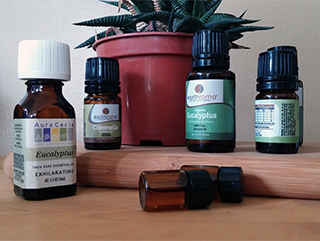
Essential Oils 101
Take a deep breath...Oils ain’t Oils!
While you can make your own herbal oils, it would most certainly be easier to purchase them from your local health food store, or online. Herbal oils have a number of benefits and uses, from use in cooking, as a topical application, or for the purposes of aromatherapy.
The most commonly used herbal oil is essential, though they can also be infused. Essential oils use a large quantity of the plant’s material and require dilution before use- they are concentrated so cannot be used directly. However, infused oils contain a small amount of the plant’s material, thus can be used immediately.
- Essential oils are frequently used with carrier oils for topical applications such as in massages, beard oils, and hair applications.
- Concentrated essential oils can be used in aromatherapy, bathwater, diffusers, or in a compress.
Before purchasing herbal oils, it’s important to ensure that you are purchasing high quality products. To achieve the maximum healing effects from your oils, you must check what you’re buying.
Production
Essential oils are generally extracted by mixing them with alcohol, oils, fats, and other solvents. There are varying methods, which are dependent on the type of plant and its chemical makeup.
Pure essential oils, though, are usually extracted via steam distillation. The plants are picked and suspended over boiling water, allowing the steam to draw out the oils. The steam rises and is captured and pushed along tubing. When the steam is rapidly cooled, it condenses back into water. As essential oils and water do not mix, they separate allowing the essential oils to be collected.
Quality
As a product of nature the quality of the essential oils can be affected by the species of plant, growing conditions, the technique used to extract the oil, storage, and additional factors. In some cases, the temperature, cloud cover, and even the soil type can have an effect on the oils.
In order to determine essential oil quality, there are three characteristics to consider – grade, purity, and integrity.
Purchase
It might sound like a difficult task, but it only takes a bit of practice to determine which oils are of good quality. Until that day comes, you will need to rely on the brand. The company decides on what quality of oils they produce, and some companies only sell cheaper grades. You don’t generally get a choice as the consumer as to what products are stocked, but using price alone as a guide is not the way to proceed.
Don’t be fooled by labels stating therapeutic grade or pure, anyone can say this and it doesn’t give you an indication of the oils quality. Additionally, if the label says fragrance oil, it is simply an artificial scent as opposed to an essential oil. Instead, keep your eyes peeled for oils labelled organic, or wildcrafted.
Brands such as Young Living, Essential Vitality, Mountain Rose Herbs, Aura Cacia, and doTERRA all have excellent reputations in producing essential oils of the highest quality.
Storage
How you store your essential oils is just as important as the rest of the process it has gone through to end up in your cabinet. You should always store them in glass containers, as many of them can dissolve plastic. Because of this your oils you could be contaminated by the plastic, even if it’s only a temporary storage solution.
Additionally, essential oils should not be stored in dropper bottles. This is because the squeeze bulbs and rubber seals can melt.
The color of glass bottle you choose for storage isn’t important, but you should keep them away from heat sources, and away from direct sunlight. Heat can affect the potency of essential oils, if you have room in your refrigerator it is an ideal storage option.
